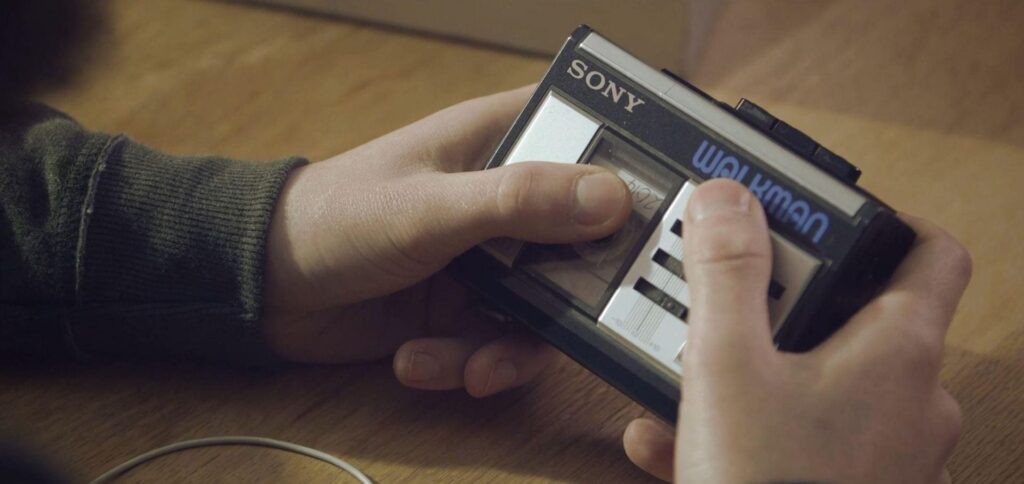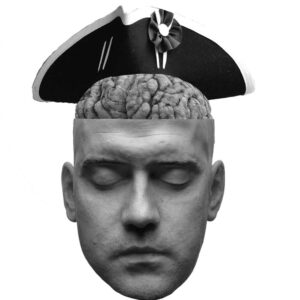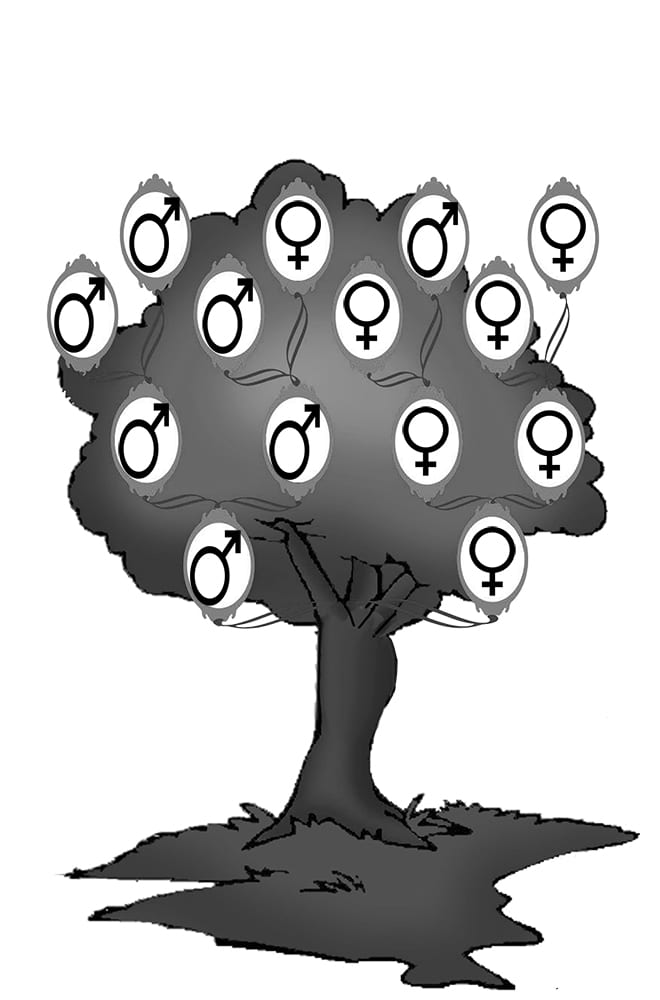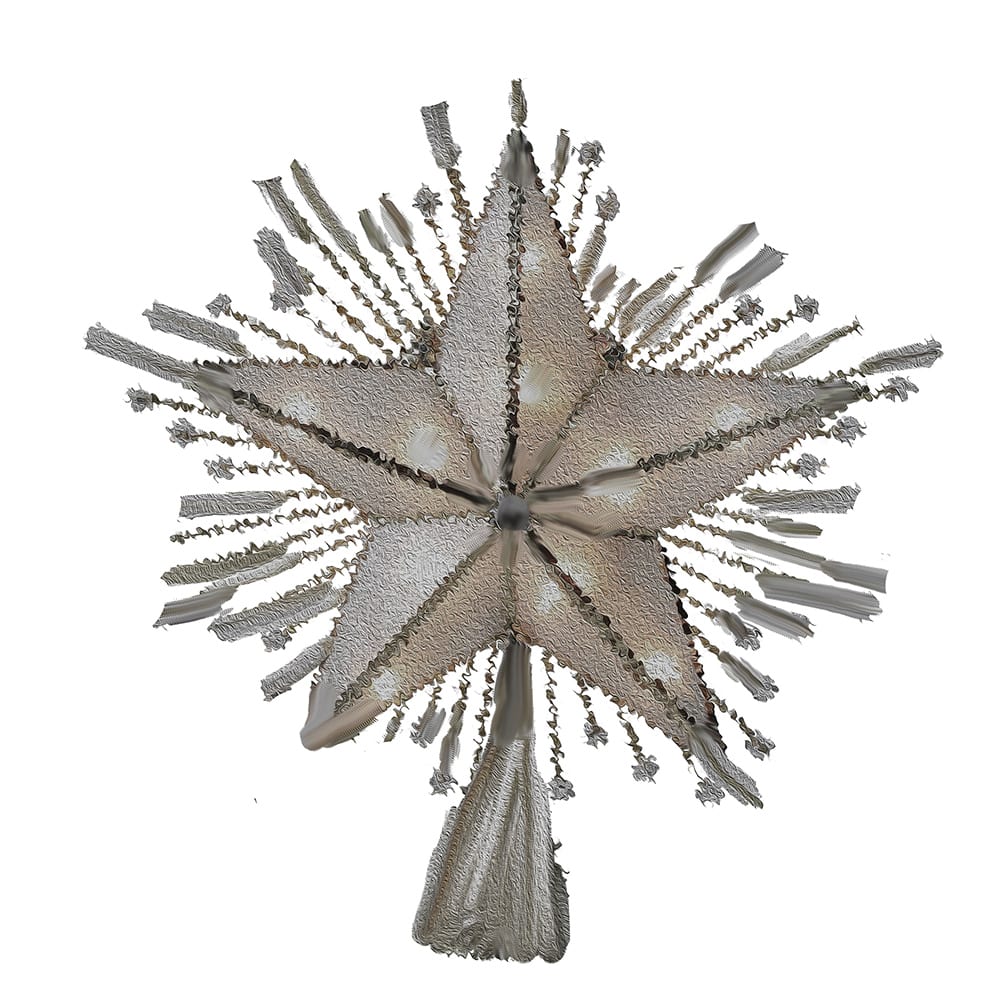Tag: short story
The Cycle of Getting Better
by The Cowl Editor on February 8, 2019
Portfolio

by Julia Zygiel ’19
This time it had been a cassette, its original label covered up with a piece of scotch tape that read “Self help” in purple Sharpie. Eloise would rather send her beat up Volkswagen over the guardrail and into the valley below than listen to it. The tape sat next to a Walkman that had been brand new about 30 years ago, but was still holed up in a crushed, dusty box. It had taken more than 300 miles of driving between Iowa and Nebraska to happen upon it. A lot of asking around at unnerving gas stations too, because Google Maps refused to give her reliable information. Eloise was a traveler, a nomad, but never had she felt farther from home, or more alone. Maybe the cassette wouldn’t even work. Maybe all of the years of disuse had scrubbed the filmy tape free of any words, sighs, notes, or noises it could hold. She could only hope.
At midday she finally saw another gas station and took the opportunity to fill up. Things weren’t as plentiful here as they were on the coasts, and running out of gas in the middle of nowhere wasn’t ideal. Her palm ached to release the handle of the fuel nozzle, and she stared blankly into the passenger seat of her car, at the cassette tape and Walkman balanced on top of a precarious pile of bags. She wasn’t sure why she had bought the Walkman, wasn’t sure why she had brought the tape, only that she felt some obligation to do so. The fuel nozzle’s handle clicked and slapped back into its original position when her tank had been filled up, and she drew her hand back, wincing as if she had been hit. It was at least another two days until reaching Yellowstone. Back in the driver’s seat, she eyed the Walkman again.
The cassette tape felt surprisingly heavy, and predictably fragile, in her hand. The Scotch tape was curling at the edges, the shine of the Sharpie had faded, and a delicate half-moon of bite marks decorated its right side. It was surprising that whatever animal had gotten hold of it hadn’t destroyed it, since it was made out of cheap, brittle plastic. Eloise turned the tape over in her hand, discovering a star in the same purple Sharpie on the back. Pinning the tape underneath her thigh she slid on her foam covered headphones and opened the Walkman. The tape clicked into place. She took a deep breath. Another. She pressed play.
At first, only static washed in and out, like a tide come and gone too quickly. Then—
“You must find your most authentic self.”
Panic tore the headphones from her head, catching a few strands of hair in the process. She held pause until her thumb felt numb and when that wasn’t enough to keep the tears at bay, she threw the Walkman into the passenger seat. Hope stopped her from mustering the energy to destroy it. She hadn’t heard that voice in years. Why was she so angry? She hunched over in her seat, the hot plastic of the steering wheel burning her forehead, the smoky quartz that dangled from her neck pressed into her palm. “I must’ve forgotten.”
After 200 miles across Nebraska, Eloise could not shut off her mind. Her racing thoughts refused to exit through mouth, nose, or ear canal. The voice from the cassette wouldn’t leave either. You must find your most authentic self. She felt authentic already, in her car, the shakes and tears of the last gas station still with her. For the past three hours, she had ruminated in just her thoughts and a country radio station without a steady signal. She was her authentic self, baked in the boiling broth of authentic thoughts. If that wasn’t her true form, she wouldn’t know any other way to reach it.
“I’m authentic,” she whispered to herself, squeezing the hard plastic of the steering wheel.
After another 200 miles, it seemed that the voice of the tape had drowned out the not-so-steady country radio. All she could hear was the same seven words repeating. Maybe she had been mistaken, maybe this voice wasn’t actually familiar to her, and she had simply been on edge. Her itching hope told her it wasn’t that.
As the next opportunity presented itself, she pulled her car over to the side of the road and pressed “play” on the Walkman. She hoped that she hadn’t broken it by throwing it, held her breath, and then realized her mistake in doing so when she choked on air at the return of the voice. She had not been mistaken.
“What are those things that hold the essence of your soul? Your hobbies? Your occupation?”
The voice paused for a breath at the same moment that Eloise found hers. Gingerly, she placed the Walkman between her thighs to keep it from sliding from her jeans onto the floor and shifted the car into gear. She needed to make sure she was making good time, and she could pause the tape any moment she liked, easy peasy.
“These, and the other things of importance in your life, will inform you of your truth.”
The voice was lilting, and soft, calm, and metered, just like Eloise was used to. Despite herself, she felt a faint smile lift the corners of her lips.
“Your personal truth is rooted in your personal past, and its discovery will unlock success and unimaginable possibilities. With it, you will find yourself capable of so much more.” After a brief pause, the voice continued, cooler now, “Is that what you want?”
The voice on the cassette tape stopped altogether, waiting for confirmation from its listener. Feeling stupid and ecstatic and scared, she whispered an electric “Yes,”a secret only for her and the Walkman.
“Good,” the tape responded. Briefly Eloise considered that it wasn’t a recording. “Imagine your mother, an object that reminds you of her.”
Eloise thought of the ribbons her mother used to braid into her hair when she was young. She thought of their bright, floral patterns, and the glitter that fell from them and was impossible to wash out.
“Feel it in your hands, squeeze it, remember how pretty it looked against your auburn hair.”
Eloise’s hands trembled on the steering wheel, but she did not pause the cassette. Instead she imagined the texture of the ribbons, and the face of her mother.
“Remember how happy it made you feel when your mother would braid your hair, remember the soft smile she would give you as you tugged on the strands to make sure they were wound tight enough.”
Her headphones felt like they had sewn themselves over her ears. Everything else, the whine of the engine, the rush of the wind whipping around her car, was muffled, faraway.
“You mustn’t forget, Eloise.” Now she could see that face, her face, clear as day. She was so beautiful. “You cannot let them erase me.”
Eloise had been warned about this, she remembered now. When you suppress certain memories, they try to come back. She felt an immense pressure in her skull as all the worst memories of the voice—of her mother—the insecurities, the trauma, came rushing back. She managed to pull over and get her door opened before she puked. They had promised it would be permanent this time. She thought she had done everything right.
Bleary-eyed and sniffling, she chucked the Walkman and its headphones into the road where it was pulverized by the wheel of a Jeep. She took a half hour to calm down and pulled back onto the road, rerouting to the nearest hospital. She just had to try again, until the memories were too mangled to return. That, or she would start the whole thing from scratch and be done with it.
Maribela
by The Cowl Editor on February 1, 2019
Portfolio

by Jessica Polanco ’20
This morning, the sun was selfless, too selfless and better yet, shining its rays all over our backs without our permission. Mia and I have to walk 25 miles up to the sea to get water and bring it back to our families. These are the duties that the townspeople have to do as citizens and, unfortunately, today is our turn. It is not like I would have preferred any other day to do our duties, but today is special for me. After five years, I finally raised enough money to buy myself a candle.
I am in the middle of a book called El Viaje de las Estrellas, and I am so anxious to find out what happens next and what happens after that. During the day, I work, helping Mami with the chores all around the house and by the time the day is over, the light of the sun is gone. It becomes impossible to read what the pages are saying. Now, with the candle, I can finally read at night. Maribela, from the book, just got lost in the middle of the woods near her town, and I need to know what happens to her next.
“Mia? Do you think we can run to the sea and get back as quickly as possible?” I ask.
Mia looks at me worriedly. “Of course, we can lift our feet and run with the wind that the trees provide. We can close our eyes and—snap!—we pick up the water from the sea and be right on back.” Mia chuckles. “What’s wrong, Sophi?”
“I am in the middle of a book, and I just bought a candle so I can read at night.”
“You need to get your head out of those books, Soph. You get so lost in them and you forget of the world around you. Your head should be here, helping everyone out. This is your book, Soph. Your life. Those books hold nothing for you.”
“Ugh Mia, you’ll never understand. Are you ready? Let’s go.”
One more mile and the sea awaits. I can hear the tiny waves crashing against the shore. It feels cooler near the water and much more peaceful. The language of the sea has always been one of my favorites, after Spanish, of course. I once read that there are moments when it rants loudly enough to envelope the wind, leaving nothing but curiosity in the air. I warn Mia to be careful when we greet it. It sounds like it is in a good mood today, but you never know. The sea does not respect us. Nature expects us to obey whatever it throws at us. If we complain, it will only get worse with the intention of testing our obedience.
Mia sighs—we are both exhausted once we arrive. We sit on a rock by the shore and admire the view. Who knew that the sea could serve as a bed for the mountains? They look so peaceful as they lay under the sky.
Mia breaks me out of my gaze and declares that we must get to work if we want to get back to town by sun down. The barrels we carried here are about to weigh five times more than they did before, only making our journey back home harder. This is what the captain trained us for though, we can handle it. With no more barrels left to fill, Mia and I take another glance at the beautiful view. We wave goodbye with our glares. And, of course, the sea sends its warm regards. It remembers us from our last visit.
Halfway home, the crickets sing their warnings to us, letting us know that the moon is approaching. I also hear another warning and that’s when it happens. Mia’s scream takes over the whole evening. When I look back, all I can see are the barrels rolling down the hill we had just finished climbing, skipping over the branches buried under the ground. Mia is out of my sight and I run towards nowhere trying to find her. I scream her name and all I hear are the birds singing. My heart begins to beat in my throat. “Mia, please don’t lose me,” I whisper into the abyss.
I am running and searching. After what feels like a run across the globe, I find myself back with the sea. There is Mia, screaming for help, in every language she knows. Her voice begins to vanish with the waves of the sea. This is what I cautioned her about. Panic takes over my flesh; I am torn between two friends I know well. Suddenly, Maribela enters my thoughts, and I am reminded of her bravery. She has a father who showed her how to build boats when she was a little girl. Just like me. And that’s when I trust in the skills my father showed me. After years of practice, I build a boat. I sail off into the reflection of the moon on the sea, with the fret of detachment from Mia and the comfort of the waves.
Writer’s Block: “I swore to myself that this would be the last time…”
by The Cowl Editor on February 1, 2019
Portfolio
TWO WRITERS, ONE LINE: “I swore to myself that this would be the last time…
The Last One
By Erin Lucey ’20
Dan
I swore to myself that this would be the last time. But as I sift through the pile of potential suspects, I can’t help but torture myself with the thought that I must have missed something again. Okay, I thought, THIS will be the last time, and then I have to go home. Carly is probably one re-run episode away from falling asleep on the couch, trying desperately to wait up for me. I feel so guilty about how often I have been leaving her all alone with the baby. I’ve lost count of how many nights it’s been since I’ve made it home while little Troy is still awake. I had always promised myself that I wouldn’t be that type of dad, but at this point, I can only hope that my son won’t remember these days without me, and that soon I will learn to balance and separate my personal and professional lives. After we crack this case, I thought, I am never getting this involved in my work again. I am missing out on so much of my life, obsessing over the twisted acts of this anonymous criminal. By subjecting myself to this endless cycle of leads followed by deadlock, I am letting this monster steal life from me, too, though not with the same direct brutality as that used on these poor girls.
The dim light of my desk lamp begins to flicker, probably a sign that it’s time to pack up for the night. Hopeless, I am just about ready to give up. Maybe I am just too invested, but I can’t ignore the feeling that I am so close to cracking this. There must be something obvious that I am missing! Has it been right in front of me all along? This barbaric man is getting away with some of the most savage slayings I have ever seen. How could I let these innocent little girls down? As guilty as I feel for spending so much time away from my family, the guilt I feel for these young girls who have suffered, never to see their own families again, is unbearable. I can’t let this guy get away with this. With just enough incentive to look through those arbitrary clues one last time, I finally see it. Of course. It’s been right in front of me all along! I practically jump out of my seat. The killer! I know who he is!
Julie
I swore to myself that this would be the last time, but as the thrill of the enchanting power I held when taking the life of another person engulfs me again, I already know I am going to crave this feeling some more. Okay, that statement made me sound crazy. It’s not what you think. I do know that what I am doing is wrong. It’s not like I am one of those psychopaths that doesn’t feel any guilt. The truth is, I do feel really bad about it. Every day, the thought of just ending it all and turning myself in crosses my mind. But at the same time, what do I have to lose by continuing with my actions at this point? When they do catch me, I will probably already go to jail for life for what I’ve done so far, even despite my status as a minor. So why not chase the electrifying feeling all the way to the end?
I don’t quite understand how no one has even thought to question me yet. Do I really seem that innocent? Anytime I see my famous crimes on TV I completely freak out. How has no one noticed that? I always feel like I am making it so obvious! While part of me wants to just get caught and get it over with already, I can’t escape the intense desire to keep this up. How far can I go? How blind can they be? I must be really good at what I do.
Late Night Visits
by Sarah Kirchner ’21
I swore to myself that this would be the last time…
The last time I went into his room and
The last time I let him manipulate me with lies,
The same lies he told too many girls before me.
Those girls who I see too often and have to hide from,
Because they know just like I do.
They memorize the lies only to tell themselves
That he really means it this time.
“It’s only you.” Classic.
I swore to myself that this would be the last time,
That I left his room at 4 a.m.
And walked home alone in the dark.
The feeling of regret washing over me
But not enough to make me not go back,
Because he has a pull that I can’t quite refuse.
The way he smiles at me makes my heart beat faster,
And I never know exactly what to do.
He texts to me “u up?” and somehow
I feel like the luckiest girl in the world.
He barely does a thing,
Yet he’s become my everything.
I swore to myself that this would be the last time,
And one day it will be the last time.
It terrifies me that someday
He’ll really be gone.
I’ll believe in myself instead of his lies
So that one day I will walk out that door
And never go back.
New Year’s
by The Cowl Editor on January 24, 2019
Portfolio
by Erin Lucey ’20
Ten…Nine…Eight…I counted down, chanting with the crowd all the way to one. For the first time in I don’t know how many years, I was actually excited for this new year. A lot had changed in the past year, and I can count on one hand how many of those changes were for the better. I was desperately in need of a fresh start. Something new and exciting—a sign that things would soon be going my way. As everyone turned to plant a celebratory kiss on their neighbor, I locked eyes with the person who brought me to where I am now, though I can’t say that this was the type of change I had been praying for.
After the lingering countdown hugs, screams, and dancing died down, he approached me. “Hi Ella, it’s me, Tony. I know it’s been a while, but I’ve actually been looking for you for quite some time now,” the stranger explained. As I stared at him, the confusion in my eyes must have been painfully apparent because he grabbed my hand and pulled me off to one of the empty offices that hadn’t been locked for the event. “So, I know this is crazy, but some people know that we were there. They’re trying to figure out who did it, and they want us to talk about what we saw. I know it’s painful to think about, and going back to that night is probably the last thing you want to do, but I’m scared of what will happen to us if we don’t help them.”
I stared blankly into the concerned eyes of a man I’ve never seen before. “I-I’m really sorry. I think you have the wrong person. I have no idea what you’re talking about,” I said, clutching my jacket and heading back towards the noise of the party crowd. “No, Ella, you do. It’s about Addie. The night at the lake.” And that’s it. That’s all I remember before waking up here.

The Turn of the Prey
by The Cowl Editor on January 24, 2019
Portfolio

by Sarah Kirchner ’21
The wind whistled through my ears as I sprinted down the empty street. I was running faster than I had ever run before. My improvement wasn’t from practice, though. I was running from something, and that gave me a motive. It was something my dad never really taught me about, but when he died, he told me I had to run and that I could never stop.
It had been four days of consistent running and few breaks. Before my dad died, we stayed hidden. We were constantly moving from place to place so that we were never anywhere for too long, but it didn’t feel like a constant run. Things were different now, though. The country’s population had dwindled down to almost nonexistent. It was only me, running from something I had never really encountered.
Every now and then, my dad and I would run into another family. Everyone was on the same mission: keep away from main streets and cities, and never leave tracks. The less people traveling together, the better. My dad said we were being hunted, and that it was like this ever since he was a teenager. I tried to ask him what life was like before the hunters, but he didn’t like talking about it.
My first night sleeping alone in the woods, I heard something. In the distance, there was a horrible growl that vibrated the ground and reached under my skin. I held on to the knife I kept at my side, but I had absolutely no idea what to do if the growling creature reached me. Dad always talked about hunters. That night I realized the hunters weren’t human. My world suddenly felt like an alternative universe. For my entire life, my dad and I had hunted squirrels and the occasional deer if we were lucky. However, things were clearly different. The hunted turned into the hunters, and for that reason I was never safe. My dad was smart enough to realize that, so when he left this world I was thrown into reality.
I was not safe. I was all alone. I had no one to help me. I had to survive.
Somewhere in the country, Dad said there were government camps that would help us. Together, my dad and I had been searching for them. Other groups told us to stop looking and that we were better off finding some bunker to die in, but Dad was determined, and so was I. The thought of being with people and not alone was really what drove me to keep looking. I needed help if I was going to survive the apocalyptic world I was raised in. Dad said the camps were designed to save us from the hunters and as a way to rebuild the country. I didn’t believe that second part. If the country had been in shambles for 30 years, I wasn’t sure it could ever be saved. Dad believed in our country though, so for that I was going to fight for it and find a way to survive and improve life.
The wind whistled through my ears as I continued to sprint, and it wasn’t going to stop whistling until I found something out there in the world that would help me live. I wasn’t going to stop until I made Dad proud.
The Marsh
by The Cowl Editor on January 24, 2019
Portfolio

by Julia Zygiel ’19
The townspeople of Emsworth hide their secrets in the marsh. Signs line the singular road which snakes around it, warning against entrance and to beware the almost ever present fog. On sweaty summer nights and cool fall days teenagers will wander around it, carefully tip-toeing across logs to avoid sinking their hiking boots and sneakers into puddles of mud. They search for necklaces with keys for pendants and small wooden boxes that have been glued shut, lacquered flowers on their lids. Anything that will fit the legends their grandparents tell them. Once sunken in the marsh, a secret will stay there, but if somehow discovered, it will betray its former master in a heartbeat. Most of the kids are only looking for dirt on high school rivals. Rumors were adequate in tainting a reputation, but a secret gathered from the marsh had real weight. It had the power to destroy. Something about the act of ritual requiring balance, the grandparents would say. The teenagers assumed their grandparents over-exaggerated as always, like when they told their stories of the war. They merely craved the privilege of a secret, a rarity in a town as small as theirs, and the thrilling satisfaction that accompanied its telling. They never expected to find anything more than a box, or a key. They never expected their neighbors to be capable of secrets more sinister than these. Until Cecil Hester of the 10th grade, shivering despite the summer heat, lost her purchase on a mossy log and felt soft flesh cushioning her fall.
What We Start With
by The Cowl Editor on January 24, 2019
Portfolio

by Jay Willett ’20
We start with it, or better, among it.
Born into a world—it was waiting to catch us.
Some of us got the pleasure of being raised along it.
We never understood it then.
Not until we saw him or her.
Our little hearts thumped faster.
It felt good.
Perhaps we were still too young to understand it.
One day, we talked to them.
They either rejected or accepted us, our first set the impression.
Of what it’s like to develop it ourselves.
A couple of souls later, it ignited into a new flame.
Passion, desire, lust threatened to contaminate it.
The fire lasted for years.
Until one day, just as quick as it erupted, it faded.
Back into the hollow crevice it had emerged from.
We hated it.
We hated what we were born into.
Pain, sorrow, refusal threatened to eliminate it.
We wait now.
There is still plenty left to go.
We want to feel the thumping again.
We want to feel the fire.
But we can’t forget the pain.
So, we wait now.
Until the day our hearts can be reclaimed.
Until we can be born again.
Until we meet that soul.
And hopefully,
We end with what we started with.
Love.
The Reincarnation of George Washington
by The Cowl Editor on January 24, 2019
Portfolio

by Connor Zimmerman ’20
“Vreeeeeeooooww…BOOM!” The dust stings my eyes as it falls from the ceiling above. Eyes that were once green have become perpetually red, but that is what happens when you’ve spent the last six years in a bunker. The bombs are a constant occurrence. They’ve become a white noise like crickets chirping in the hot summer nights. They just make it hard to hear, even if someone is a foot away and yelling down your eardrum. I get closer to try and pick up what the sergeant is saying, but he stops and looks directly at me.
“Did you hear what I said, soldier?”
“No sir, I didn’t.”
He grumbles something and says, “Well you already know the basics. Are you ready for the procedure?”
How does someone answer that? “Procedure” sounds so innocuous. Sounds like I am getting a cavity filled. But there really is no other answer except for, “Yes, sir.”
The sergeant looks at me once again and finally says, “How a scrawny guy like you is the next George Washington, I will never know.” I respond with silence because I do not know the answer. How could a nobody like me be the next host of Washington? But sometimes the hosts are the most random people. I heard the last host of Dwight Eisenhower was born from a prostitute.
The sergeant starts to walk away, and I follow. “Soldier, we are heading to the preparation room, where the doctor will tell you about the details of the procedure for the final time. Listen carefully because there is no going back.” I nod my head, trying to keep pace with my superior. The sergeant suddenly stops, and I run into him. I fall backwards, but he stands upright. He mumbles something under his breath, while I pick myself up and dust myself off. He punches a code into the keypad, and the doors swish open. With a final nod he walks away, and I am left standing at the open doors. Darkness stares back at me, daring me to enter. Trembling, I step forward.
As soon as I am in the room, the doors slam shut behind me and the lights turn on, blinding my eyes. When you live in darkness, your eyes never get used to light. Out of nowhere a surly voice says, “Mr. President, it is an honor. Well, it will soon be an honor.” My eyes slowly readjust to see a short man with a devilish smile in front of me. His blue eyes size me up like a butcher looking at a prize bull. He motions for me to sit on a medical table on the right side of the room. I follow his instructions and walk to the table, and as I look up, I notice a window facing us at the top of the room.
When I sit down, a machine drops from the ceiling and begins to scan me. The short man begins to speak, “My name is Dr. Smith, and I will be walking you through the Reincarnation Procedure today. As you know, you are a perfect match to be a host for the mind of George Washington.” A mechanical arm drops down from the ceiling and it sends a slithering tube down my ear. The doctor sees me wince, but he continues on, “Today we will be ridding you of your mind and replacing it with President Washington’s brain. You will be the key to ending this forever war that we are in.” The slithering tube exits from my nose, and it is covered in mucus and blood. The doctor grabs the tube from my lap and replaces it with a mountain of paper work. “If you will just sign off in the marked off places Mister…. well I guess it doesn’t matter who you used to be. Just sign the paperwork and we can begin with the procedure.”
The doctor leaves the room, but I know that I am not alone. There are people watching me on the other side of that window. Waiting for me to sign my life away, but can I? As I look at the paperwork, some of the phrases catch my eyes. Symptoms will include: Replacement of mind and personality…Loss of control over body…There is no way to reverse the effects of the procedure. I’ve always been told country first, no matter what. That a soldier is expendable…must be expendable in order to be a part of something greater than themselves. But how do I sign my life away? I don’t get to fight. I don’t get to go out on my terms. I joined the army to prove that I could help out my country. To prove that I was worth something. But they only see me as a shell, something to be used to hold their precious general.
I look up at the window and then back down at the papers. I throw the papers to the ground, and I shout at the invisible men, “I won’t do it. I won’t give up my life.” I pull a knife out of my boot and go to slit my throat.
“WHAM!” The doors suddenly slide open, and out of nowhere men tackle me to the ground. One knocks the knife out of my hand, and then I feel a searing pain in my right side. I look to see a tranq in me, and the light in the room fades away.
My eyelids struggle to fight off the assaulting light. It burns through them, and I begin to become conscious again. I go to cover my eyes with my hand, but I cannot move my hand. I look to my side, and I see that it is strapped down on a table. I struggle to move every single muscle in my body, but nothing gives. Suddenly, I hear that surly voice again. “Did you really think you had a choice soldier? You are nothing but a tool for us to use as we see fit. Start the procedure.”
A machine jets down from the ceiling, and all I can do is scream. The pain drowns out every other feeling in my body. Happiness, sadness, frustration, any emotion I had ever felt combined is nothing compared to what I feel now. The light slowly starts to fade from blinding to dim until the darkness envelops me once again.
…
The machine goes back up into the ceiling and Dr. Smith walks over to the motionless body. He shines a light in its pupils and then says, “Mr. President, are you with us?” A smile creeps across the mouth of the body.
Patriarchy and Matriarchy
by The Cowl Editor on January 18, 2019
Portfolio
by Julia Zygiel ’19
“Yeah,” aunt Amelia interjects, her folded arms bouncing to secure attention. “He used to go to the neighbor’s dressed up as Santa and get absolutely shitfaced. He’d come home singing and swearing,” she laughs, a hand emerges to cover the crinkle of her nose and eyes, as if joy at her father’s embarrassment is something to be coyly hidden from view. Overly impressed by her own story, she laughs to the point of tears. Her two nieces, one college-aged and one already married, both named Rachel out of respect for their great-grandmother, wear faces that are equal parts horror and humor, unsure if they should follow her lead or reassure each other that that’s not typical grandfather behavior.
As Amelia’s laughter dies down to a quiet smile, it occurs to the older Rachel that her aunt doesn’t care about how they see their grandfather. She tells the truth and lets them sift out their feelings for themselves, claiming no responsibility for his reputation or integrity in the eyes of his grandchildren. His own actions determined those things long ago.
The contrast between the maternal and paternal families of her older niece is striking. Rachel knows that there are stories like this on her father’s side, although she doubts she’ll ever hear of them.
The Flynn family is still painfully patriarchal. All but one of the oldest generation is a man, and they are all determined to maintain the image of their parents as an American Wet Dream, the father who was a factory man all his life, steady and noble, and the staunchly Catholic mother who darned all of the clothes and cooked all of the meals. Not a single flaw to be seen in their simple, yet noble existence. That part of the heritage has yet to be reclaimed by women, if it ever will be. Any dissent from the current line has only ever been voiced by Rachel’s mother, an outsider who knew what a dysfunctional family looked like, who told her quietly of Grandma Flynn’s mental illness, and alcoholism.
The Strickland’s are different. There, the women rule. The mothers of two Rachels and their sister: three women for whom the most impactful authority figure in their life has been their mother, for better or for worse. Women who have never been given a reason to trust men. One divorced, one abandoned with a child to care for, and the third stuck with an abusive husband. Despite all the trauma they are still some of the most delightful women ever encountered. Strickland family parties are full of song, laughter, and gossip.
Flynn family parties are colored by storming exits orchestrated by the youngest, the sister, and the tacit agreement between brothers that, despite their disappointment, they must support her. It is a family of ties strung from duty, colored by subtle resentment voiced during car trips to a cousin’s house. Silence prevails, inherited from grandfather and his father. Gripes and pain are pushed down in favor of passive aggression. The song of the Stricklands is lacking, and the laughter bites.

Starlight
by The Cowl Editor on December 8, 2018
Portfolio
by Jessica Polanco ’20
It was 4:30 in the evening and Lorrinda was relieved to go home. It was her first day at work, and she was exhausted. Despite the traffic, she got home just in time to make dinner for her family. Once she entered her home, she headed straight to the kitchen and connected her phone to the aux to play her favorite Christmas song, “All I Want for Christmas is You” by Mariah Carey. She pulled out the pots from under the stove and began prepping some salmon and peeling potatoes. She sang and sang while she cooked so that she forgot about how long and exhausting her first day at work was.
Suddenly, the doorbell rang, and Lorrinda made her way to the front door. Eli and Sophia were pulled into their home by the aroma of the food cooking. They threw their book-packs and jackets to the side and ran into the kitchen. “MOM!!! You’re cooking our favorite dish! YAY!” Their smiles spread from cheek to cheek, and the innocence in their eyes illuminated a warmth in Lorrinda’s heart. “Yes babies,” and gave them both kisses on their foreheads, “how was school?”
“Good mom, today we wrote our letters to Santa. I told him that I want the new Lego collection, and the Heelys in all black. I even promised him that I will make him cookies and milk if he comes mom!” yelled Eli.
“Yeah Mom, it was so fun. I told Santa I wanted a mermaid tale blanket in purple and the Bratz doll collection. I even prayed in my head before I signed it. I’ve been good all year so I think Santa will come Mami!” screamed Sophia.
Lorrinda laughed while she began plating the mashed potatoes. “Oh, I don’t know babies, we’ll see if Santa comes and pays us a visit this Christmas. We can definitely make him some cookies for his visit.”
“I hope so Mami, you say he will come every year but he never does!” pouted Eli.
“I think this Christmas will be a good one, don’t worry.” She said smiling, knowing that this year would be the first year she would be able to make it special for her twins.
During dinner, Joey came in. He was dressed in his construction clothes. Eli and Sophia screamed, “DAD!!!!” He tried to smile back at his family but the exhaustion was married to his facial expression. Lorrinda kissed him and mentioned that his food was in the microwave. “Thank you, my love. I’ma go shower and then come back down to join you guys.”
The Polar Express was playing on the TV once Joey came back downstairs. He grabbed his dinner and joined his family on the blanket laid on the floor. The children began to drowse off and minutes later the snores began to take control of the room. Joey finished his plate and returned to the living room floor. He tucked himself in after checking if Eli and Sophia were good, and smiled proudly. Lorrinda made sure all the Christmas lights were on. As she clicked the Christmas tree lights on, she grinned at the fact that she was finally living the holiday the same way her friends would boast about during this time of the year. She strolled to where the her family laid sound asleep. Lorrinda cuddled behind Sophia and closed her eyes and prayed to her Savior before she fell asleep.
Suddenly, a warm breeze ran through the living room and Sophia woke up crying. Her cries were accompanied by the fire alarm screaming. Joey’s eyes burst open like a dropped eggshell. He jumped up, carried Eli from the floor and yelled “WAKE UP! WAKE UP! WE HAVE TO GET OUT NOW!” The fire trucks sirens were getting more and more intimate. Lorrinda finally woke up from her deep sleep, she began crying and whispered,“Why is this happening to us?” She knew she would not get an answer and picked up Sophia from the floor and ran outside. Taking a glance at everything they worked so hard to finally have, her looks kissed them warm goodbyes. Every item she glanced at formed a deeper pond of tears in her vision. It made it harder for her to see and the smoke in the house did not make it any better.
The Calderon’s finally made it outside. They stood shivering above the snow, witnessing their house get watered down, noticing everything had gone with the fire. Eli and Sophia sobbed, the innocence of their eyes left without any warning or remorse. A firefighter approached the family with a long face. “I’m sorry Mr. and Mrs. Calderon, everything in the house is gone. You and your family are welcome to go to the Crossroads Family Shelter nearby. If you need any transportation, we will be glad to drive you.”
“Thank you,” Joey said, barely. The firefighter continued, “The only thing that survived was the starlight topper from the Christmas tree.”


